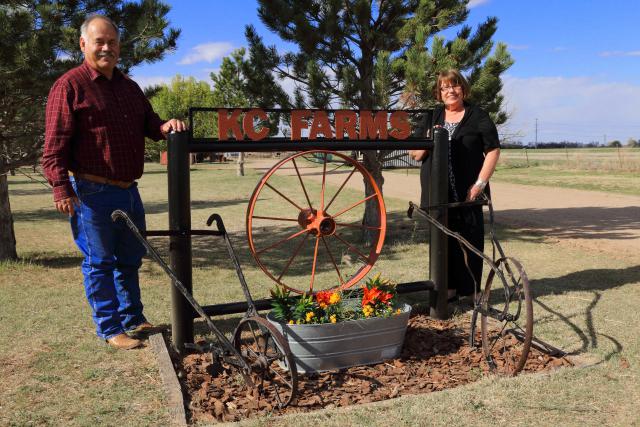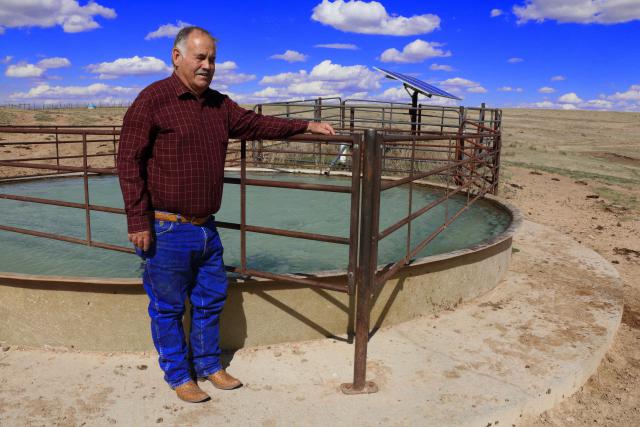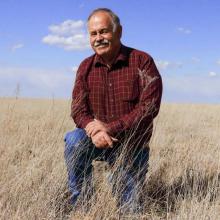
As you walk with Karl Jett through the knee-high grass on his Beaver County ranch in the Oklahoma Panhandle, you realize how a lifetime of conservation efforts can pay huge dividends today, and tomorrow.
Jett owns KC Farms, a family farm and ranch southwest of Slapout. KC Farms is a diversified farm and ranch with irrigated and dryland wheat, forage crops and grass. They also have a commercial cow herd.
“I’m a fourth generation farmer and rancher,” Jett proudly states.
Some of the land he works on today was originally settled by his ancestors in 1904.
“It was still called No Man’s Land then, said Jett, referring to the area’s infamous title granted by a New York journalist, ‘God’s land, but no man’s.’ It was a tough place to grow food then, and still is today. However, Jett and his family have found a way to co- exist with nature and sustainably manage the land.
After years of working with the Beaver County Conservation District, Jett was appointed by Gov. Fallin in 2011, to the Oklahoma Conservation Commission, overseeing conservation programs for the Panhandle and northwest Oklahoma.
His long term dedication to conservation was recognized this year by the Oklahoma Association of Conservation Districts as he was inducted into the OACD Hall of Fame.

